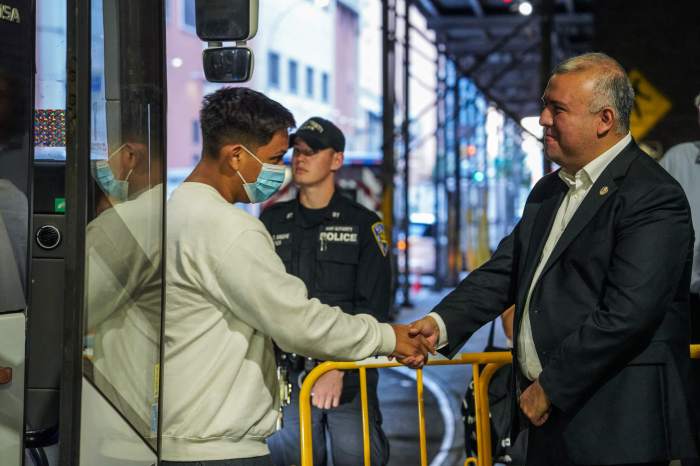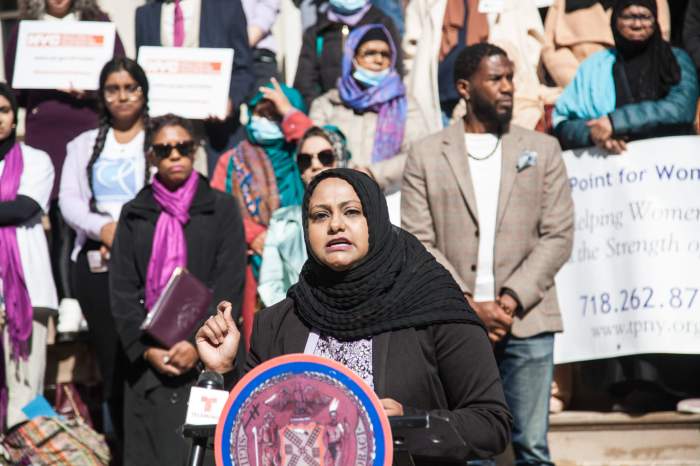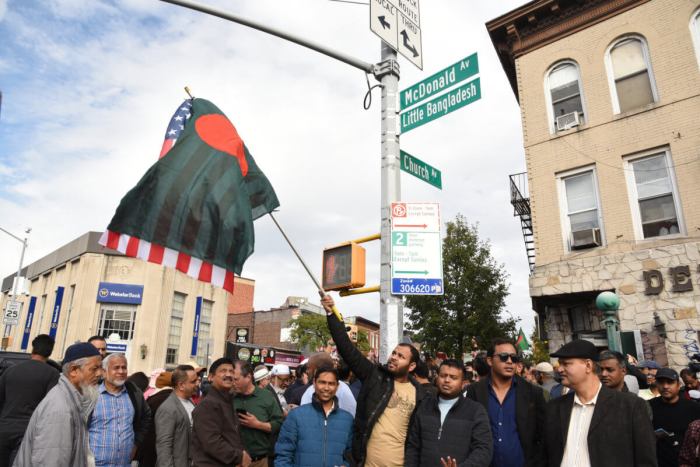Each year, thousands of New Yorkers must fight for their lives in immigration court without a lawyer. Leonard was almost one of them.
In 2021, Leonard escaped persecution and torture in Kenya, where he was born, for protesting the murder of a young man. He and his wife fled to the United States seeking safety, but he was detained by Immigration and Customs Enforcement (ICE), first in Clinton County Jail, then at the Buffalo Federal Detention Facility in Batavia.
Facing deportation, Leonard could not afford legal representation, but thanks to the New York Immigrant Family Unity Project (NYIFUP), which provides detained immigrants with lawyers under a public defender model, he was able to get an attorney on his side.
After a lot of preparation, he won his asylum case, was released by ICE, and returned to his pregnant wife in time to be there for his son’s birth. Leonard is now free from detention, and he and his family are planning a future together in upstate New York where he hopes to be an advocate for others facing similar circumstances.
This is a true success story about the power of a government program to improve people’s lives. But negotiating and renegotiating budget funding for immigrant legal services every single year is neither fair nor sustainable. Immigrant New Yorkers’ access to representation should not be subject to annual political bargaining – it should be secured by law. That’s why it is critical to pass our bill, the Access to Representation Act (S999/A170), which creates a right to a lawyer for any New Yorker facing deportation who cannot afford one.
Enshrining that right into state law means that the lives of people facing deportation will not depend on the political whims of whoever happens to be Governor. Senseless, selective budgeting decisions without any rhyme or reason have harmfully impacted life-saving legal programs, leading to agonizing payment delays and painful prioritization decisions for those on the front lines. Making the Access to Representation Act a permanent state law would put an end to this brinkmanship.
Leonard was one of the lucky few.
Without legal representation, Leonard would have had to gather evidence, navigate complex immigration law, and argue his case in court alone – against a trained government lawyer. If he had lost his case, he would have faced deportation and separation from his wife and child. As it is, state funding is not nearly enough to cover the crushing caseloads many attorneys are handling right now. Currently, thousands of immigrants in the state are forced to fight their cases without legal representation. And without a lawyer, release from detention is nearly impossible. In fact, people with representation are seven times more likely to be released from detention and 10 times more likely to establish the right to remain in the U.S.
Immigrants in these complex cases are stigmatized by harmful rhetoric from divisive politicians, when, in reality, fewer than one percent are facing deportation as a result of a criminal charge. New York has an opportunity to counter this cynicism with a welcoming policy that centers the dignity of immigrant communities and recognizes that they are the essential fabric of our state. More than one-third of children in New York have an immigrant parent. Immigrants make up over a quarter of our state’s workforce and contribute more than $130 billion in annual tax revenue.
The time to act is now. Governor Kathy Hochul and our legislative colleagues can help more families like Leonard’s reunite by swiftly passing the Access to Representation Act and increasing state funding for immigrant legal services. With these measures in place, New York can ensure that more families remain together, stay in their communities, and help them remain safe and free. Everyone should have the same chance Leonard had, as a fair trial should not benefit only the lucky few.
Thanks to the state’s investment, Leonard is alongside his wife and young son as they build their lives in Western New York. Their future is brighter now: Leonard aims to return to his career as a chef — making pasta from scratch is his specialty — and one day going back to school to study aviation. Most of all, he will continue to advocate for social justice, including standing up for New Yorkers facing deportation and fighting to ensure everyone receives the right to universal legal representation.
Regardless of how immigrants seeking safety and stability arrive in New York, they need assistance navigating a complicated legal system and a byzantine political bureaucracy. For Leonard, and all of our neighbors and constituents in need, we must pass the Access to Representation Act now.




































